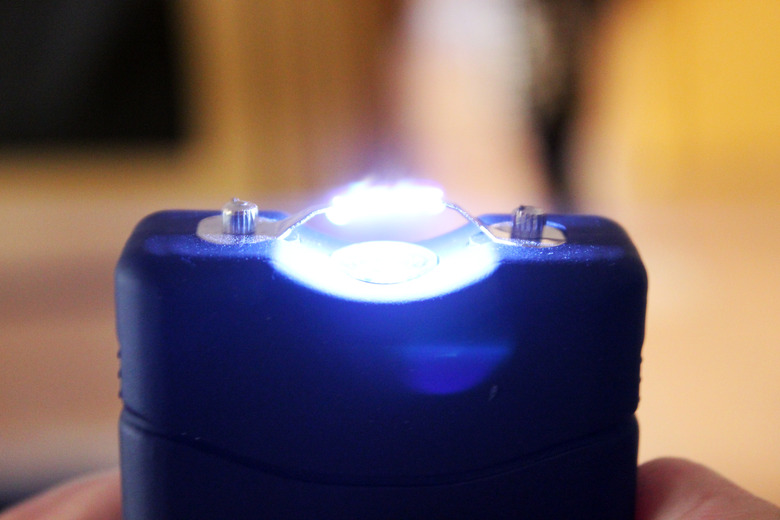What Does A Taser Do To The Body?
When Tasers Attack
When Tasers Attack
A taser can administer nearly 50,000 volts to a human body. Law-enforcement personnel typically use these devices to subdue criminal suspects who try to evade or resist arrest. It generally does not inflict permanent physical damage on normal or healthy human beings. Even though tasers are non-lethal weapons, they may facilitate permanent injury or even death in people with heart or neurological problems. Tasers have also been known to kill people who take both legal, and illegal drugs, as well.
Volts, Amps, Blood and Veins
Volts, Amps, Blood and Veins
The reason tasers are not lethal is that, while tasers create a huge amount of voltage, these devices do not generate a large amount of amperes or amps. When prongs on a taser hit a body, highly charged particles, not necessarily only electric current, pulses through the body. This process has a direct effect on a person's nerve signals that allows him to run or fight back. The relationship between volts and amps is comparable to blood, and veins. Imagine a vein or artery filled with blood, and that blood is traveling somewhere. Volts are the amount of blood in the vein, amperes is the current in which it flows. The volts can flow everywhere, but if the amps do not get the volts where they need to be, they are of virtually no use, in many circumstances. Diminished amperage is why tasers are not lethal alone.
Motor Neurons and Muscles
Motor Neurons and Muscles
The human body has a collection of electrical impulses; human motor neurons are responsible for this. Neurons in the body make little electrical signals that get interpreted by the brain and nerve endings. Experts really don't know everything about how neuron and electrical impulses work, but generally speaking, different nerve signals get sent to the brain for various reasons–your brain can tell you to pick up a glass and drink even when you are not thirsty, for example. If you get tasered while you tried to do this, your body may still understand that you want to pick up the drink–it will not maintain enough motor neurons to flow to the brain to bring this desire to fruition. This is because certain collections of neurons seemingly work exclusive of each other–one set can be affected, while another group may continue to work separately on its own. Overall, nervous systems need neurons to tell our muscles what to do.
Cite This Article
MLA
Leonard, Vaughnlea. "What Does A Taser Do To The Body?" sciencing.com, https://www.sciencing.com/taser-do-body-5405416/. 11 September 2009.
APA
Leonard, Vaughnlea. (2009, September 11). What Does A Taser Do To The Body?. sciencing.com. Retrieved from https://www.sciencing.com/taser-do-body-5405416/
Chicago
Leonard, Vaughnlea. What Does A Taser Do To The Body? last modified March 24, 2022. https://www.sciencing.com/taser-do-body-5405416/
